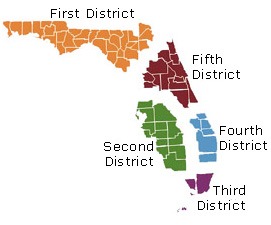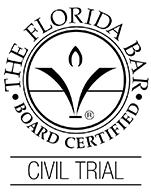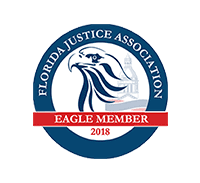 Implied Assumption of the Risk Reaffirmed by Fifth District Court of Appeal
Implied Assumption of the Risk Reaffirmed by Fifth District Court of Appeal
Assumption of the risk is a legal concept whereby an injured party’s ability to obtain a judgment against an offending party is either partially or completely barred. The Florida Supreme Court has previously ruled that an express assumption of the risk only exists in express contracts not to sue and injuries resulting from contact sports.
In its recent decision in Petruzzella v. Church on the Rock of Palm Coast, Inc., 42 Fla. L. Weekly D 1141, (Fla. Dist. Ct. App. 5th Dist. May 19, 2017, the Fifth District Court of Appeal[1] reiterated the longstanding Florida Supreme Court ruling. The case of Pteruzzella concerned a plaintiff who was a volunteer musician drummer and a member of the Church on the Rock of Palm Coast, Inc. During a rehearsal, the plaintiff tripped on the bass player’s unsecured cord and fell off the stage. As a result of the fall, he sustained substantial injuries. The injured musician and his wife filed suit against the property owner alleging that the Defendant was negligent for failing to maintain the premises in a reasonably safe condition; that the Defendant failed to correct a dangerous condition which the Defendant either knew or should have known of by using reasonable care.
The trial court granted the church’s summary judgment motion. The lower court found that Plaintiff was aware of the condition of the stage and either knew or should have known of the risk of tripping over the unsecured cords on the stage. Despite that knowledge, he continually, repeatedly, and expressly assumed the risk of performing on that stage over a two-year period up until and including the date of the accident.
The Fifth District Court of Appeal overruled the trial court’s decision and noted that the plaintiff’s conduct did not provide a complete bar to recovery but should instead be weighed by a jury. In other words, the Plaintiff was still allowed to have his day in court.
[1] Covering Orange and Osceola (Ninth Circuit); Volusia, Flagler, Putnam and St. Johns (Seventh Circuit); Lake, Marion, Sumter, Citrus and Hernando (Fifth Circuit); and Brevard and Seminole (18th Circuit)


![cftla-member[2]](https://www.1800askdave.com/wp-content/uploads/2022/03/cftla-member2.png)
![cftla-member[3]](https://www.1800askdave.com/wp-content/uploads/2022/03/cftla-member3.png)










